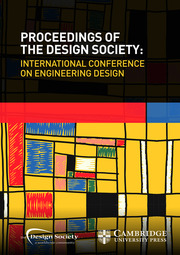No CrossRef data available.
Article contents
Assessing Regulatory Focus Differences in Creative Ideation: An Examination of Prevention and Promotion Mindsets on Novelty and Usefulness
Published online by Cambridge University Press: 26 July 2019
Abstract
The purpose of this work is to compare impact of regulatory focuses, namely preventive and promotional contexts, on creative ideation measured by novelty and usefulness. The study consisted of Singaporean students from an undergraduate university, and assessed their personality using the Big Five, Regulatory Focus, Creativity type and creativity outcomes measured with the Consensual Assessment Technique by completing a Collaborative Sketch exercise. Participants were randomly assigned to either the preventive, promotional or a baseline condition and tasked with a design problem necessitating a solution in the form of sketches. This study found the three conditions to yield significantly different novelty scores, but not usefulness scores. The most impactful condition on novelty was the baseline, indicating novice designers are capable of creating novel products and services. Those in the promotion condition created the second most novel sketches, or design solutions, followed lastly by the prevention condition. This may be so as novice designers consider larger space of solutions and may generate more ideas. This research is useful in creative pedagogy and for design professionals.
- Type
- Article
- Information
- Proceedings of the Design Society: International Conference on Engineering Design , Volume 1 , Issue 1 , July 2019 , pp. 49 - 58
- Creative Commons
- This is an Open Access article, distributed under the terms of the Creative Commons Attribution-NonCommercial-NoDerivatives licence (http://creativecommons.org/licenses/by-nc-nd/4.0/), which permits non-commercial re-use, distribution, and reproduction in any medium, provided the original work is unaltered and is properly cited. The written permission of Cambridge University Press must be obtained for commercial re-use or in order to create a derivative work.
- Copyright
- © The Author(s) 2019


